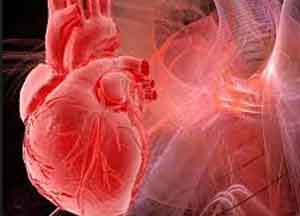- Home
- Editorial
- News
- Practice Guidelines
- Anesthesiology Guidelines
- Cancer Guidelines
- Cardiac Sciences Guidelines
- Critical Care Guidelines
- Dentistry Guidelines
- Dermatology Guidelines
- Diabetes and Endo Guidelines
- Diagnostics Guidelines
- ENT Guidelines
- Featured Practice Guidelines
- Gastroenterology Guidelines
- Geriatrics Guidelines
- Medicine Guidelines
- Nephrology Guidelines
- Neurosciences Guidelines
- Obs and Gynae Guidelines
- Ophthalmology Guidelines
- Orthopaedics Guidelines
- Paediatrics Guidelines
- Psychiatry Guidelines
- Pulmonology Guidelines
- Radiology Guidelines
- Surgery Guidelines
- Urology Guidelines
Nearly two-thirds of heart attacks missed by standard medical tests

The researchers of National Heart, Lung, and Blood Institute, National Institutes of Health, Bethesda, US investigated long-term outcomes of Unrecognised subclinical MI and found that with time, the mortality rate of patients with sub-clinical MI increases and is the same as those with diagnosed MI.They also found that 63% of these sub-clinical events are missed in routine medical care but are picked up by electrocardiogram (ECG) or by cardiovascular magnetic resonance (CMR) imaging, which is more accurate. This implies that nearly two-thirds of heart attacks are missed by standard medical tests.
"Unrecognised MI has a poor short-term prognosis but until now the long-term outlook was unknown," said lead author Dr Tushar Acharya, a cardiologist at the National Heart, Lung, and Blood Institute, National Institutes of Health, Bethesda, US. "This study investigated long-term outcomes."
The study included 935 community dwelling participants of ICELAND MI, a substudy of the AGES-Reykjavik epidemiology study. At the start of the study, participants underwent an ECG and CMR and were categorised into one of three groups: unrecognised MI (sub-clinical events, missed on routine medical care, but picked up by CMR), recognised MI (clinical events, also picked up by CMR), and no MI (verified by CMR).
The average age of participants was 76 years and 52% were females. At the start of the study, 91 participants (10%) had recognised MI, 156 (17%) had unrecognised MI, and 688 (74%) had no MI.3
"That means 63% (156 out of 247) of the myocardial infarctions identified by CMR were missed in routine medical care," said Dr Acharya. "Unrecognised MI may be more common than recognised MI."
At ten years, mortality rates were similar in patients with unrecognised and recognised MI (49% and 51%, respectively) and significantly higher than in those with no MI (30%) (p<0.001). This compares to rates at five years, where the mortality rate of patients with unrecognised MI (13%) was higher than in those with no MI (8%) but was lower than in those with recognised MI (19%).
Dr Acharya said: "This shows that with time, the mortality rate of patients with sub-clinical MI increases and is the same as those with diagnosed MI."
Dr Acharya said: "Patients with unrecognised MI do not receive medications commonly prescribed to heart attack patients to reduce the risks of death or another heart attack. These include aspirin, high intensity statins, angiotensin converting enzyme (ACE) inhibitors and beta blockers. They should also be advised to control risk factors such as hypertension and diabetes, and may be candidates for revascularisation to open blocked arteries."
"Knowing that they had a heart attack may also persuade some people to adopt a healthier lifestyle with adequate physical exercise and no smoking," he added.
While population screening to identify MI using CMR is not likely to be cost-effective or practical, Dr Acharya said shifting a proportion of cardiac evaluation from traditional tests to CMR could diagnose more unrecognised MI.
He said: "Using CMR in patients with cardiac symptoms would likely detect many more heart attacks than traditional diagnostic tests. There are good therapies to treat survivors of MI so finding them early should improve prognosis."
Cardiovascular magnetic resonanceDr Tushar AcharyaECGelectrocardiogramheart attacksmedical testsNational Institutes of Healthrevascularisationstatins
Source : Press ReleaseNext Story
NO DATA FOUND

Disclaimer: This site is primarily intended for healthcare professionals. Any content/information on this website does not replace the advice of medical and/or health professionals and should not be construed as medical/diagnostic advice/endorsement or prescription. Use of this site is subject to our terms of use, privacy policy, advertisement policy. © 2020 Minerva Medical Treatment Pvt Ltd